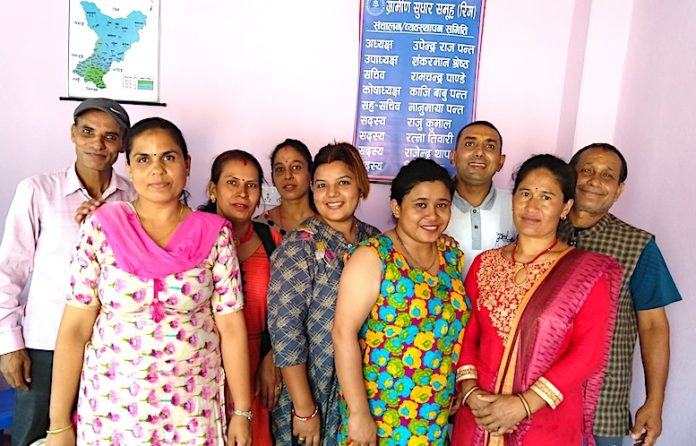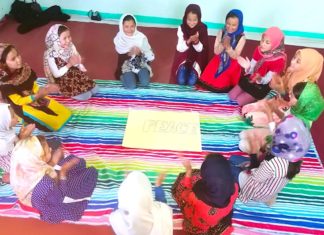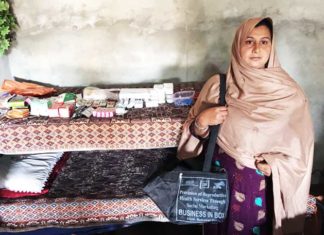 By Paul Burgess
By Paul Burgess
Access to training and development for the rural and remote grassroots NGOs of Nepal and India is limited due to the lack of availability, affordability, and location. However, significant long-term sustainability can be gained from delivering training and development at the grassroots level. The tangible benefits to organisations and the marginalized communities they serve would be seen in terms of immediate impact in the field and in the longer-term impact on the Sustainable Development Goals (SDGs).
CDV Global (Community Development Volunteer Global) is a UK based company that provides pro-bono training and development to these grassroots NGOs through skills-based volunteering programmes. We offer both experienced professionals and corporate clients the opportunity to share their expertise and knowledge through a structured volunteering programme that is designed to offer long-lasting sustainable growth for the NGO, ethical and equitable experiences for the volunteer and reportable actions aligned to the Sustainable Development Goals.
Volunteers live locally during the training, staying with a host family either from the NGO or a nearby household.
The guiding principle for CDV Global’s programme was the belief that those working in the communities are best placed to know and understand the needs of the community. Through an in-person and individualized process, the CDV Global in-country teams assess and collaborate with an NGO to create a long-term training strategy that brings together both specialised knowledge and universal business skills. The tagline Globally Skilled, Locally Rooted reflects our mission to share knowledge and expertise through human connections.
Volunteering with CDV Global, however, is not a typical pay-as-you-go voluntourism option. Although it is a paid programme, volunteers are selected by the NGO as there must be a viable fit for the training that is required. Once selected, the volunteer begins an exciting 12-week collaboration with the NGO to co-create seven days of training that they will eventually deliver at the NGO’s office. Volunteers are expected to spend about 40 hours creating meaningful content prior to their departure, but this isn’t done alone. CDV Global provides a personal training consultant, a structured curriculum outline and about 40% of the content is pre-designed business skills training.
The training delivery is split into two parts; 5 days and 2 days, with a break of five to 15 days in-between. This enables the volunteer to travel and discover more of the country whilst the NGO staff digest the initial training. The second part of the training is focused on areas highlighted for more detailed training and to really solidify both the team’s learning and the volunteer’s relationship with the NGO.
Volunteers live locally during the training, staying with a host family either from the NGO or a nearby household. This sense of community and cultural learning is vital for the volunteer’s experience and long-term relationship with the NGO.
Examples of training that volunteers could deliver to an NGO come from a wide range of sectors and skills including finance, marketing, social work and office management to name a few.
“The three main skills for the successful development of NGOs are: 1. Risk Management 2. Fundraising 3. Financial efficiency. And all should be achieved through integrating technology into our work,” says Dr. K Beema, the Executive Director of the Integrated Project for Development of People and a CDV Global partner, believes
In Nepal, Nab Raj Pahadi, the President of Collective Concern Society (Sindhuli), is concerned with the lack of basic skills in some NGO workers.
“Our community work is underpinned by the principle of ‘learning by doing’. We do not have skilled human manpower because local community people are not qualified in the development sector,” he says. “So some of them are not able to write minutes, understand how to conduct meetings or deliver presentations, and this is a big issue in this field.”
Training rural and remote NGOs does not come without its challenges. Language barriers can be significant and access to communications for collaboration is sometimes difficult. This is something the CDV Global team has been keen to overcome.
With over 20 years of training and development experience that was tested to the limit whilst volunteering in India, Steve Cullis (co-founder) was inspired.
“I devised our training programme to take into consideration many of the difficulties that may arise when training in what can be a challenging, non-tech environment of a small NGO office. But one of the exciting things about training is improvising and using what materials are available,” he explains.
CDV Global’s approach has gained the stamp of approval with civil society leaders in both Nepal and India.
CDV Global’s approach has gained the stamp of approval with civil society leaders in both Nepal and India. The NGO Federation of Nepal has recently renewed their partnership agreement for three years with CDV Global. This offers their 6000 plus members access to the CDV Global network of skilled individuals and corporate volunteers.
“Skills-based training is important for our member organisations in enhancing their knowledge and skills on resource mobilization, resource generation and resource mapping for their respective community’s development,” says Jitram Lama, President of the NGO Federation of Nepal. “And a global network creates shared best practices, highlighting updated global policies, new development rights and creates solidarity on global issues such as climate change, poverty, and so many other issues.”
In addition, CDV Global also works directly with the Association of Youth Organisations of Nepal and FEVOURD-K, the leading civil society organisation for NGOs in the state of Karnataka, India.
The Women and Environment Development Society in Karnataka are keen to work with international volunteers. “It is a good time for NGOs to globally cooperate as a network. It will help with sharing resources, knowledge, best practices, and also generate new opportunities,” points out V. Chakrapani, the organisation’s chairperson.
[If you’d like to learn more about skills-based volunteering with CDV Global, you can contact the CDV Global team by phone +441892620695, through their website https://cdvglobal.com/or email directly them at [email protected].]
(Paul Burgess is the Co-founder of CDV Global. He lived and worked in Nepal and India for a number of years where he delivered programming across youth development, WASH programmes and livelihood generation. He has extensive experience leading volunteering programmes for both young people and adults across both charity and corporate sectors. He has travelled extensively, taught English in S.Korea for a number of years, and in a previous life was a senior manager in the UK prison system)












Social business, good social business I would say. Someday I want to volunteer and impart my experience also. Maybe after the COVID-19. This nonsense disease is interfering with everything. All the best guys.
Hey Pedro, thanks for your comment, appreciated. Really good to know you’re interested in volunteering, if you’d like to know more about our programme drop me a line at the email address in my article.
I think this is a nice initiative, but I see the danger that it will be commercialized. The whole idea of volunteering is doing it for free, so what happens when you have to pay to volunteer? The pro-bono volunteering concept is good though, and often underutilized.
Hey Chen_88, thanks for your comment, I appreciate it. We are really aware that the commercialization of international volunteering is an issue and so we have been very careful in our methodology. There is always a cost to organised volunteering and those costs are generally operational and functional. The key is to ensuring that there is equality and equity for both the volunteer and the organisation, and that is what we try to achieve. I’m happy you like our pro-bono approach, it’s really effective at building capacity for the NGOs.
If you’d like more information, don’t hesitate to contact me on the email or phone number in my article.